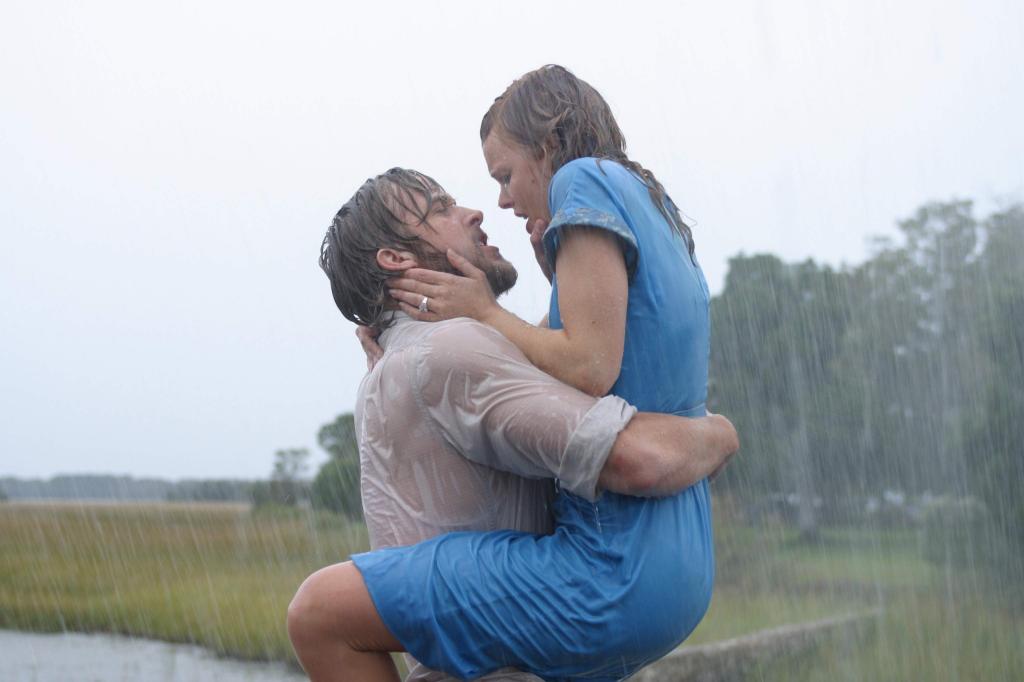This week in Sunday Life I discuss The Notebook
If you ever find yourself in the laundry at a party skewered against the tub of stubbies by some eye-glazing, go-nowhere conversation, try this tactic. Ask everyone’s thoughts on The Notebook. In my experience everyone has a take on this 1996 novel, turned into a film in 2006. And it’s always pleasantly diverting.
I mean, most of us admit to only having half-watched the movie, and only to witness Ryan Gosling work his magic. Right? Blokes will say their wife made them do it. But in the next breath they’ll confess it made them cry. I know an ex-world number one light heavyweight boxer who’s watched it 14 times and a burly fireman who’s seen it nine. Both cried every time. Which is a phenomenon in itself.
But what I find interesting when I spike party small talk with such a conver-bomb is that invariably women say they love the film because the female protagonist Allie – who’s faced with choosing between first love Noah and her posh, sweater-n-chinos fiancé – eventually goes with her heart. Chicks love this.
Blokes, however, say they get all prickly-eyed because the dude who sticks to his belief that he’d found his girl (and built a house in readiness for her return) wins the day. The nobleness entailed in this and the fact he stands by Allie through all kinds of calamities hits a waterworks nerve for men. Chicks also love this.
Choosing to go with your heart, and determined, stoic nobleness – it’s fundamental Venus vs Mars stuff. But at the core of both takes is the same principle, I think. A “good” decision was made. And committed to. Simple! Phew!
Since seeing the film myself, I’ve always wanted to know author Nicholas Sparks’ take on love. Is he a romantic? A cynic? This week I got my opportunity during his visit promoting his seventeenth novel The Best of Me. Sparks, who’s sold more than 55 million books, is an Anthony Robbins-type figure in zeal, gum-chewing ability and all-American jock-like stature. He also doesn’t mince his thinking.
I ask him for his personal formula for noble, heart-led happiness. “It’s about wanting the same kind of life,” he says without hesitating. “Do you both want to get married? A church wedding? How many kids? Shared finances? Private schools? Sit-down dinners?” Stunningly, he discussed all this with wife Cathy on their second date, aged 23. Thus, a “good” decision was made and they both committed to marriage six months later.
I left our meeting a little overwhelmed. But it all kind of clarified the mass-appealing vibe of his work – he simplifies love in a world where we’ve made it terribly complicated. As Sparks says, it’s the “what ifs” that plague us, and are thus the predominant theme in all his books. What if we married the wrong girl? What if we waited longer for The One? Today, many of us are bogged down with these what ifs, adding more and more options to the to-ing and fro-ing – What if he holds me back from my career? What if I can find better? – which often stalls our happiness.
It’s become a theme of this column: options drive us mental. Author of the wonderful book The Art of Choosing Sheena Iyengar makes this argument eloquently. She cites an Indian study comparing arranged marriages with love marriages. In the first year, love marriage couples cited more satisfying unions, but after ten years those in arranged marriages – where partners were chosen according to pragmatic qualities – were far more satisfied. The explainer: the latter were confronted with a “good” decision (albeit made by others) and then they simply committed (albeit in a culture where this is supported). Love grew from the decision and the commitment. Simple! Or at least simpler. Iyengar makes one of my favourite sociological points: marrying for love is a modern concept, only about 400-500 years old. Prior to that we all married to get a job done. Then love grew.
I’ve talked to hundreds of people about this theme. It’s fun, fundamental stuff. I’m certainly not about to let Mum hunt me down a husband. I like the fact deciding to not marry is a great option. I also like to be reminded that simpler is better. And that sometimes what matters – and what piques our tear ducts with relief – is a bit of pragmatism, nobleness and making things work.
What do you reckon? Do we lack an ability to just decide and commit? Is it the times? Do we allow too many what ifs? Do we let “romantic love” rule things too much?


